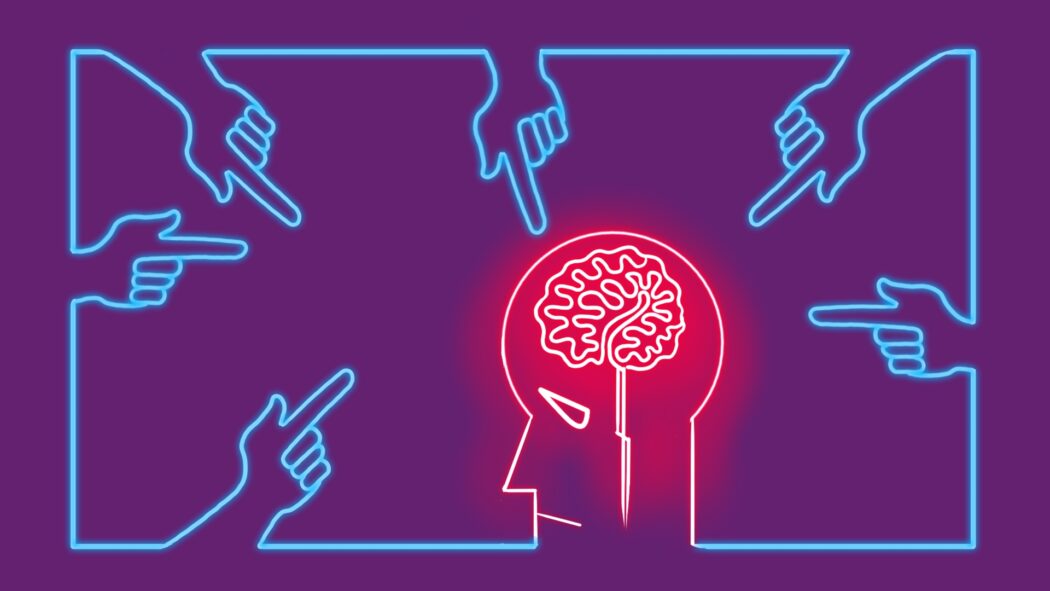Opinion: Know the signs of mental health issues
Editor’s note: This article talks in-depth about the signs of mental health and will talk about suicide, self-harm. If you or someone you know may be in a crisis, call the National Suicide Prevention Lifeline: 800-273-8255.
During the long winter months, mental health is usually at an all-time low for most people.
The dark skies, lack of sunlight and sickness increase cases of seasonal depression and anxiety. But even if this is more common in the winter, clear skies and warm weather does not mean everything is automatically better for some people.
In this article, I will give you some tips on what to look for in your friends in order to read into their mental health and help them.
Depression
One of the more common types of depression seen this time of year is Seasonal Affective Disorder, or SAD. Mayo Clinic defined SAD as the culmination of the negative feelings during the colder months of the year, usually coming and going around the same cycle. While the colder parts of the year are harder to stay positive in, especially for students, we have to engage in activities that make us happy and watch for the signs in our friends.
Psych2Go provided a few ways to figure out if your friends are having trouble with their mental health.
A friend may have depression if they are apathetic towards activities they used to enjoy, have changed their eating habits, act irritably, isolate themselves, seem more closed off and/or make big life changes. These are not definitive symptoms of depression, after all, everyone reacts differently and some people are better at hiding it.
Eating Disorders
Anorexia nervosa is a type of eating disorder where people starve themselves to lose weight and vomit up food. Bulimia nervosa is when people binge-eat uncontrollably and seek to “purge” by vomiting up the food.
The National Eating Disorder Association says a few signs for these disorders are a distorted body image, constant worrying about food, frequent dieting, general discomfort about food and eating, extreme mood swings, skipping meals, rituals with eating, obsessed with appearance, withdrawal from others, picky eating and concern with body image and looks.
Physical signs may include calluses and cuts on fingers, cavities, discolored teeth, dental problems, bad breath, swelling of salivary glands and a sore throat from constant vomiting. There is also muscle weakness, impaired immune functioning, abnormal hormones, feeling cold all the time, fluctuations of weight and cramps.
Some of these symptoms may result from other medical issues, but either way you should be wary of how your friends change physically and how their self-esteem effects their actions.
Anxiety
Everyone has a little anxiety, but for some it can be a crippling disorder that can prevent them from functioning normally.
According to Betterhelp, when anxiety is considered a disorder, it is usually chronic and presents itself in nonspecific scenarios. Some of the signs include constant worrying, overplanning, overthinking, difficulty sleeping or resting, trouble concentrating, irritability and tension.
Some physical symptoms include hot flashes and sweating, fatigue, trembling and shaking, more frequent heart palpitations, shortness of breath and chest pains.
Those with anxiety may also suffer from more common panic and anxiety attacks. Anxiety can be rooted in school, home life, work, relationships or human interaction. Either way, it is not something to be swept under the rug just because everyone experiences anxiety from time to time.
Suicidality
Suicidal tendencies are defined by WebMD as a serious consequence of many possible mental disorders including major depression, bipolar disorder, posttraumatic stress disorder, schizophrenia, eating disorders, anxiety disorders, substance abuse disorders and borderline personality disorder.
Many of the signs of suicide are similar to depression but pushed to a more extreme side. People will isolate themselves, act moody, make big changes and close themselves off from others.
Other signs include giving away possessions, saying goodbye, hurting themselves or talking about how they want to die. That last one may make it seem obvious, but many people joke about ending their lives, and not a lot of people take it seriously. It’s important to really listen to people and watch out for how they act even if you think they’re joking about something serious.
People most likely to commit suicide include those with a similar family history, those with substance abuse problems, those prone to impulsive or violent behavior, those who have known colleagues and loved ones who have taken their own lives and those who have attempted suicide in the past.
A study published through the National Center for Biotechnology explained college students are commonly at risk for developing mental illnesses and unhealthy habits.
“In addition to coping with academic pressure, some students have to deal with the stressful tasks of separation and individuation from their family of origin while some may have to attend to numerous work and family responsibilities,” the abstract reads.
Eating disorders, thoughts of suicide, schizophrenia and other illnesses can develop during stressful undergraduate and graduate studies, while those with ADHD and Autism Spectrum Disorders are faced with more challenging responsibilities and milestones.
Even if you are not suffering from any disorders, it is important to keep our own mental health in line while checking up on those we care about. You should always try to lead them to an experienced mental health professional or hotline to talk to someone.
Many people love to give advice, but learning to just listen and be there for our friends is an exemplary quality that we can all strive for.
—
Megan Cowdell is a second-year communications student. She loves going on bike rides, reading mystery novels and watching cheesy movies.
— A02334008@usu.edu
—
Keith Wilson is a cartoonist for the Statesman. He is majoring in biochemistry and enjoys puns, drawing and big band swing dancing.

